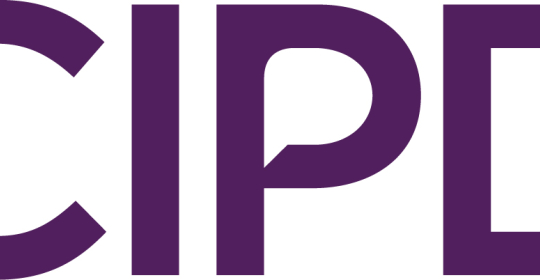- New research reveals ethnic minority workers surveyed are almost twice as likely to have a pay rise or promotion rescinded due to the current economic climate
- Ethnic minority professionals report higher expectations of out-of-hours work compared to white employees
- Nearly 3 in 5 (58%) working professionals surveyed would support the UK adopting the EU Pay Transparency Directive, requiring companies to share information on salaries before interviews and banning employers from asking about a candidate's salary history
- People Like Us calls for the UK government to introduce ethnicity pay gap reporting without delay, and urges businesses on more equitable workplace practices by providing guidance from industry experts
- The organisation has created a powerful short film with award-winning director Naghmeh Pour, to highlight these inequities (view or download)
New research released on Ethnicity Pay Gap Day by People Like Us and Censuswide reveals alarming disparities in workplace treatment and pay transparency between white and ethnic minority workers in the UK. It highlights a stark reality: ethnic minority employees are often overlooked, overworked and underpaid. People Like Us is reaffirming its call to the UK government to introduce mandatory ethnicity pay gap reporting with a clear implementation timeline.
Key findings show that ethnic minority workers face greater barriers to discussing pay, disproportionately experience negative repercussions, and feel the impact of a lack of representation in leadership roles. These inequities, coupled with longer working hours and limited career progression opportunities, spotlight the urgent need for systemic reform.
Key Survey Findings:
- Overlooked: Ethnic minority workers were almost twice as likely to have a pay rise or promotion rescinded due to the current economic climate (40% compared to 23% of white workers).
- Overworked: The majority of UK workers are working longer than their contracted hours (53%), consistent across ethnicities. A third of ethnic minority employees (33%) report working 8+ hours above their contracted hours weekly, compounding pay inequities. Additionally, non-white employees work an average of 6.95 extra unpaid hours each week, compared to 6.27 hours for white employees.
- Right to disconnect and additional expectations: 50% of working professionals support Labour’s recently shelved “right to disconnect” bill. Ethnic minority workers report higher expectations of out-of-hours work compared to white employees. 26% of non-white employees work on weekends to catch up or get a head start on the following week, compared to 16% of white employees. Furthermore, 23% of ethnically diverse employees have had time off for stress, compared to 16% of white employees.
- Discomfort in discussing pay: More than 70% of ethnic minority workers worry there would be negative consequences from discussing their pay, compared to 51% of white workers. Concerns for ethnic minority groups include being seen as disruptive (30%), facing career limitations (27%), or losing their job (22%). Only around a fifth (21%) of working professionals surveyed said their employer publishes salary bands for roles so people understand the lower and upper limit
- Retention risks: A high ethnicity pay gap would lead 33% of ethnically diverse talent to worry about their career progression and consider looking for roles elsewhere, compared to 16% of white employees. Additionally, 67% of ethnic minority professionals would either discount roles with companies with high ethnicity pay gaps or would only consider them if there were other compelling reasons (46% of white professionals felt the same).
- Hiring challenges: The risks are starker for employers if they don’t address these inequities. Not only will existing employees consider working elsewhere, but replacing them will also be more difficult. Over a quarter (26%) of potential future employees would not be willing to work for a company that has a high ethnicity pay gap, regardless of ethnicity.
- High pay gaps might also deter customers: 40.9% of ethnically diverse working professionals expressed reluctance in buying from companies with large ethnicity pay gaps, while only 34.2% said it wouldn’t factor into their buying decisions.
- Support for pay transparency: almost 3 in 5 (58%) working professionals surveyed would be for the UK adopting the EU Pay Transparency Directive to require companies to share information on salaries before interviews and employers being banned from asking about a candidate's salary history.
Campaign for Change
To combat these disparities, People Like Us is launching the #NameTheBias campaign. This bold initiative calls for greater parity in pay and workplace practices. A central feature of the campaign is a striking two minute film that highlights the voices of those affected, alongside impactful billboards and social media activation designed to spark a national conversation. People Like Us has also enlisted the help of experts to help businesses and individuals navigate conversations about money in the workplace in an equitable way.
“It’s clear that ethnic minority workers are consistently on the backfoot when it comes to pay and representation, this effect has been felt more harshly due to the current economic climate. We’re asking the government to introduce mandatory ethnicity pay gap reporting without delay as it will provide businesses with the evidence to help them level the playing field” says Sheeraz Gulsher, co-founder of People Like Us. “It's important that the job market, pay rises and promotions are a fair process for all. #NameTheBias aims to spark a much needed conversation for businesses to recognise the barriers in place for some, the value of their workforce and commit to real, measurable change.”
Tom Heys, gender and ethnicity pay gap expert at Lewis Silkin LLP commented: “The government has committed to make ethnicity pay gap reporting mandatory but has failed to say either when or how it will be implemented. In these challenging times, employers are crying out for certainty. The government should immediately publish its plan - or even just potential plan - for ethnicity pay gap reporting and allow employers to properly prepare.”
About People Like Us People Like Us is an award-winning not-for-profit organisation dedicated to celebrating and supporting UK media, marketing, and communications professionals from Black, Asian, Mixed Race, and minority ethnic backgrounds. Its mission is to elevate ethnically diverse professionals by dismantling workplace barriers and providing support to navigate these challenges through networking events and tailored career solutions.
About #NameTheBias
People Like Us’ Name The Bias campaign aims to highlight the stark inequity faced by ethnic minority workers in the UK. It features a powerful short film from award-winning director Naghmeh Pour and production company New Land. It features spoken word artist Yasmin Ali who performs an original piece, highlighting the need for change in the workplace. The film was inspired by an Oxford University study that found applicants from ethnically diverse backgrounds had to send 60% more applications to get a response from an employer, compared with an applicant with white British origin.
The campaign urges urgent action from the government in creating a timeline for the ethnicity pay gap reporting bill. It provides guidance from legal and EDI experts, providing advice on best practices when talking about money in the workplace. The campaign was created in partnership with creative agency Worth Your While.
About the Research Methodology
The research was conducted by Censuswide, among a sample of 2036 Working Professionals in the UK, aged 18+ (excluding sole traders). The data was collected between 23.10.2024 - 11.11.2024. Censuswide abides by and employs members of the Market Research Society and follows the MRS code of conduct and ESOMAR principles. Censuswide is also a member of the British Polling Council.






